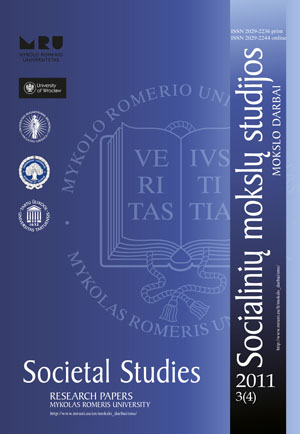Simuliacijos samprata Europos šalių sutarčių teisėje
The Concept of Simulation in European Contract Law
Author(s): Asta DambrauskaitėSubject(s): Social Sciences
Published by: Mykolas Romeris University
Keywords: Simulatio; sham transaction; apparent transaction; will; “straw man”; European contract law; DCFR; contre-lettre; prête-nom
Summary/Abstract: The article analyzes the position of contract law in various European countries in regard to the cases of simulated contracts. By concluding such contracts, parties either do not wish to create any legal effects or they prefer to hide the real pursued effects under the apparent contract. Although the term “simulation” is not used in the Civil Code of the Republic of Lithuania, the conclusion is made that Lithuanian law recognises the classical concept of simulation that is recognised by the traditions of continental law. Simulation under Lithuanian civil law comprises cases of purely fictitious juridical acts, situations where the apparent contract hides another agreement, as well as cases of apparent contracts concluded with a fictitious party (“straw man” cases). The article comes to the conclusion that in the sphere of legal reglamentation of simulation (as to the concept of simulation and its position within the general structure of the code) Lithuanian law adopted the German model. Legal norms on sham and apparent transactions are contained in the general part of the Lithuanian Civil Code and fictitiousness of the will of the parties is considered to be vitiating the consent and leads to the nullity of the simulated juridical act. In regards to the legal effects of simulation, the model contained in the Lithuanian Civil Code reflects the French tradition, namely the theory of apparent rights (théorie de l’apparence), and is in line with the position adopted by the Draft Common Frame of Reference (DCFR). As between the parties, the true agreement prevails. A special legal rule provides special protection for third parties who, acting in good faith, has relied upon the validity of apparent contract and has acquired rights which need to be protected— in such cases a simulated transaction may not be used as a defence by the contracting parties against such third persons. If the rights or lawful interests of third persons are violated by a simulated transaction, the third persons in defence of their rights shall be allowed to oppose simulation against the parties of the simulated transaction. These rules are extended by the Lithuanian courts to situations of purely fictitious contracts.
Journal: Socialinių mokslų studijos
- Issue Year: 3/2011
- Issue No: 4
- Page Range: 1417-1441
- Page Count: 25
- Language: Lithuanian

